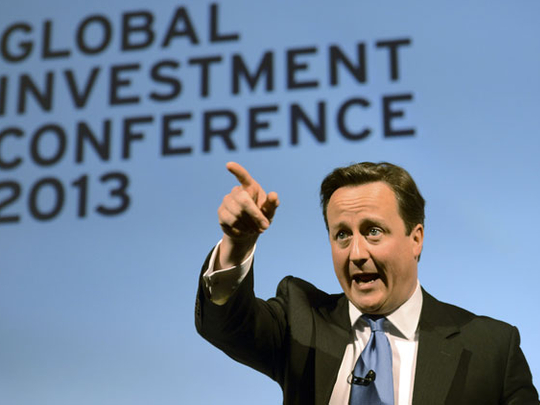
London: Prime Minister David Cameron on Thursday hit out at “pessimists” in his own party who are demanding that Britain withdraw from the European Union immediately.
He was speaking after another senior member of his Conservative Party, Michael Portillo, followed former finance minister Nigel Lawson in urging Britain to quit the bloc.
Cameron defended his approach of seeking to reform Britain’s terms of membership before holding a referendum on membership after 2015 as “logical, sensible, practical”.
His speech to an investment conference in London came amid the rise of the anti-EU UK Independence Party which had its best ever electoral performance last week.
Portillo, a former defence minister, described Cameron’s plan as an “insincere ploy” and said the EU no longer served Britain’s interests.
But Cameron said he believed it was “possible” to push through changes to the EU.
“I am faced as I do so, if you like, by two groups of pessimists,” he told an audience of international business leaders.
“There are some pro-European pessimists who say, ‘you have to, in Europe, simply sign up to every single thing that anyone in the EU suggests. You sign every treaty, you sign everything - there is no alternative’.
“I think they are completely wrong.
“The second group of pessimists say there is no prospect of reforming the EU, you simply have to leave. I think they are wrong too.
“I think it is possible to change and reform this organisation and change and reform Britain’s relationship with it.”
Portillo said in an article in The Times on Thursday that Cameron’s promised referendum would lead to no more than “minimal renegotiation” of Britain’s terms of membership.
Cameron is facing growing pressure to bring forward the referendum to before the next general election in 2015.
Any such vote would put the Conservatives at odds with their Liberal Democrat government coalition partners, who are strongly in favour of remaining in the 27-nation EU.












